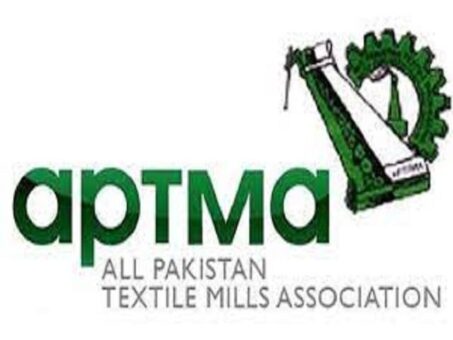Karachi, March 7, 2024 – The All Pakistan Textile Mills Association (APTMA) vehemently rejected the recent surge of 223 percent in gas tariffs over the past year, deeming it highly detrimental to the export-oriented textile industry of Pakistan.
The association emphasized the severe impact on the industry’s competitiveness in the international market, resulting in financial losses and potential shutdowns.
In an Extraordinary General Body Meeting held on Thursday, March 7, 2024, members of the APTMA Southern Zone, including the Central Chairman, gathered to express their concerns. The meeting highlighted the alarming consequences of the substantial increase in gas tariffs, especially for the export-oriented textile sector, which holds a significant 60 percent share in the country’s total exports.
Zahid Mazhar, spokesperson for APTMA, outlined the staggering escalation in gas tariffs, which rose from Rs. 852/MMBTU till December 31, 2022, to Rs. 2750/MMBTU from February 1, 2024. This rapid increase, amounting to an overall surge of Rs. 1892/MMBTU or 223 percent within a year, is identified as a primary cause for the industry’s financial instability.
Mazhar emphasized that the export-oriented textile industry is facing unprecedented challenges, exacerbated by the highest-ever interest rate of 22 percent and a substantial rise in energy prices. The gas tariff hike, coupled with these factors, has rendered Pakistani exporters uncompetitive in the global market, posing a significant threat to the survival of numerous businesses.
Furthermore, the meeting noted the insufficient capacity and capability of electricity suppliers in Sindh and Balochistan, such as KElectric and HESCO, to provide uninterrupted electricity to the industry. As a result, industries in these provinces are forced to utilize gas-based power plants for uninterrupted operations. The government’s push to encourage the use of grid electricity is seen as impractical in these regions due to inadequate capacity and supply.
Zahid Mazhar disclosed that due to the staggering increase in gas tariffs, approximately 30 percent of firms in the textiles and apparel sector have already faced closure, and the remaining are at high risk of total closure in the coming weeks. The industry, with an export capacity of $600 million per month, is unable to utilize its full potential due to the soaring energy costs, making it uncompetitive against regional competitors like India, Bangladesh, and Vietnam.
Expressing concern over the current trajectory, Mazhar warned that the export-oriented textile industry is rapidly declining, resulting in a loss of market share in the global marketplace. The industry is being supplied grid electricity at a rate of Rs. 52/kWh, more than double the charges of competing countries. Additionally, gas/RLNG rates for the textile sector are substantially higher than those in regional competing countries.
APTMA called on the federal government to reverse the decision to increase gas tariffs significantly, urging a reconsideration of policies to make textile exports competitive in the international market. The association demanded that the industry be given priority in the supply of gas to support the government’s target of achieving a foreign exchange earnings target of $50 billion through exports.
Zahid Mazhar urged the relevant authorities, including the State Bank of Pakistan and the newly elected government, to take notice of the critical issues and review gas and electricity policies to safeguard the future of the export-oriented textile industry in Pakistan.
